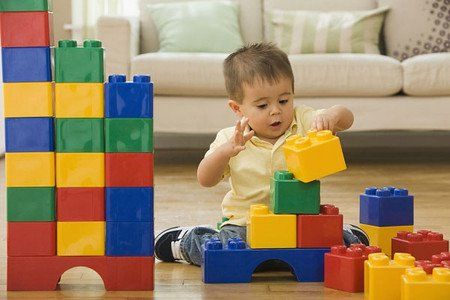This is an automatically translated article.
How tall is a 20-month-old child, what should be paid attention to in the diet, ... are always the constant concerns of parents. The following article will help answer these questions for readers.
1. How tall is a 20-month-old child to meet the standards?
"How tall is a 20-month-old baby and how much does it weigh?". According to the WHO growth chart, 20-month-old children have a standard weight of 8 - 14.5 kg, a standard height of 76 - 90 cm. If the child is still within the same height and weight range, parents do not need to worry because it proves that the baby is still developing normally.
About sleep time, children still sleep about 13-14 hours/day. In particular, the total night sleep time of children is about 11-12 hours.
2. Good foods for 20-month-old babies
For children to develop comprehensively both physically and mentally, parents need to feed and drink necessary foods such as:
Milk and dairy products: Parents should give their 20-month-old children about 500ml to drink. formula milk every day, in addition to solid foods to supplement enough nutrients for the baby. In addition, parents should also give their children more foods such as cheese, whey, yogurt, etc. They are rich in calcium, iron and many essential minerals, helping children develop in the afternoon. Fruits: Parents should practice giving their children fruit from a young age to stimulate their baby's taste buds, helping to supplement essential nutrients for children such as vitamins A, B, C, iron, and fiber. ,... Fruits that a 20-month-old baby can eat are bananas, seedless grapes, seedless watermelon, apples, strawberries, kiwi, ripe mangoes... Vegetables: In the diet of children 20 At the age of months, parents should not ignore vegetables to help their baby get the necessary amount of minerals and avoid the risk of constipation. Good vegetables and tubers for 20-month-old babies include carrots, potatoes, chia seeds, cabbage, cauliflower, beans, bok choy... Eggs: Eggs can be processed into many delicious dishes such as porridge. Eggs, steamed eggs, tomato egg soup,... This food provides a lot of protein, good fat and vitamin D, meeting the nutritional needs of a 20-month-old baby. Meat: Meats such as pork, beef, chicken, ... should all be present in the nutritional menu of 20-month-old children to provide enough protein and energy for the child. Good fats: Good fats such as coconut oil, sesame oil, avocado oil, olive oil, gac oil,... all need to be added to the 20-month-old baby's nutrition. They help provide enough fat for the child, creating energy for the baby to participate in all activities. With the question of how tall a 20-month-old child is, the answer is about 76 - 90cm. In the diet for a 20-month-old child, parents need to ensure that the dishes are easy to digest and have all the necessary groups of substances. If possible, parents should spend some time to decorate their children's dishes more attractive, eye-catching, and help them eat more deliciously.

Chế độ ăn cho trẻ 20 tháng cần được đảm bảo đầy đủ các nhóm chất dinh dưỡng
Not only nutrition, for 20-month-old children to develop to their maximum height, parents should also encourage children to exercise, foster their children's mental life and brain health. Children a deep and sufficient sleep; This will help strengthen the bone density and can grow the baby's height.
In addition, at this age, babies need to add necessary micronutrients: Zinc, selenium, chromium, vitamins B1 and B6, ginger, acerola fruit extract (vitamin C),... to improve taste , eat well, reach the right height and weight, and exceed the standard, have a good immune system, strengthen the resistance to get sick less often and have less digestive problems.
Also according to leading nutrition experts, parents need to be calm and persistent when supplementing with nutrients for children, even through eating or functional foods. In particular, the use of functional foods should choose those of natural origin that are easily absorbed, do not allow simultaneous use of many types or continuously change the types of functional foods. Besides, nutritionists also emphasize on the role of biological zinc; Parents should learn and supplement zinc for children properly at the appropriate time, to avoid zinc deficiency affecting the comprehensive development of children.
In addition to zinc, parents also need to supplement their children with other important vitamins and minerals such as lysine, chromium, B vitamins,... errands.
To have more knowledge of raising healthy children, parents should proactively update useful medical information on Vinmec.com website and immediately contact doctors and experts at Vinmec when needing support.













